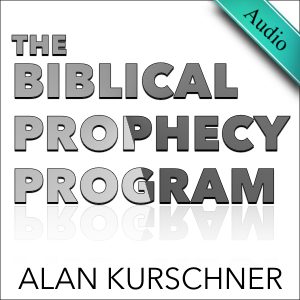Podcast: Play in new window | Download | Embed
 I responded to pretrib teacher Renald Showers and his misunderstanding of the Greek perfect tense-form and thus his interpretation of James 5:7–9 and how that affects his pretrib imminency.
I responded to pretrib teacher Renald Showers and his misunderstanding of the Greek perfect tense-form and thus his interpretation of James 5:7–9 and how that affects his pretrib imminency.
Specifically, I responded to the following statement by Renald E. Showers:
“[T]he fact that the Greek verbs translated [“near”] (v. 8) and [“stands”] (v. 9) are in the perfect tense and indicative mood. This fact means that each of these verbs refers to an action that was completed before James wrote his epistle and that continues on in that completed state.…This fact implies that Christ’s coming drew near before James wrote his epistle, and His coming continues to be near. In addition, Christ as Judge began to stand before the door of heaven before James wrote his epistle, and Christ as judge continues to stand before the door of heaven. In other words, Christ’s coming was imminent in New Testament times and continues to be imminent to the present day” (The Pre-Wrath Rapture View: An Examination and Critique, 219-20).
I described the following errors he made in his understanding:
1. Showers fails to interact with the immediate context of James 5:7–9. He merely cites about a dozen interpreters who assert the exact same thing as Showers just stated—as if that is an argument in itself! If I cite thirteen interpreters that agree with me, does that mean I am right? Of course not. This is a bad method of interpretation.
2. He states that the perfect tense in the indicative “refers to an action that was completed before James wrote his epistle.” This is not correct. The perfect tense does not encode “past action,” as it is commonly thought. This is a dated and fallacious understanding of the Greek verb system, not just the perfect tense, because “tense” is often associated in English for “time.” Not so in Greek. Only the context—not the tense-form—construes temporal reference of an action happening in the past, present, or future. When that action happens is construed by the larger context, not the tense-form of a Greek verb. The perfect tense-form communicates the semantic value of aspect, which is how the author chooses to view the action. The perfect sense conveys the aspect of a “state of affairs.” And an author typically chose the perfect tense-form to function as discourse prominence. So Showers misunderstands the Greek verb system on this point, which has exegetical ramifications for his imminence theology.
3. Another point in the Greek verb system of the perfect tense-form that Showers mistakes is he says it means that the perfect-tense action “continues on in that completed state.” Showers is once again reading a semantic value into the Greek verb system. In the previous point, he read temporal reference into the perfect tense-form (perfect=past tense), here he reads the semantic value of objective “kind of action” (to use the technical German term Aktionsart). Traditional grammars made the mistake—and some still do!—of thinking that a Greek verb could tell us how the action occurs; that is, does it indicate action “just beginning,” “habitual,” “punctiliar,” “progressive,” “ongoing,” “culminate,” etc. We know, however, from linguistic advances in our understanding of the Greek verb system that Greek tense-forms do not give us the “kind of action” of a verb, just like temporal reference does not give us this information. The “kind of action” (Aktionsart) is determined by the context (and lexis), not verb endings. So on this additional point, Showers’s imminence theology is flawed because of his mistaken understanding of the Greek verb system.
4. Finally, one does not have to search long in the New Testament before finding other examples of “near” (ēggiken) in the perfect tense-form that clearly refute any notion of imminence. A couple of examples will suffice: “But when you see Jerusalem surrounded by armies, then know that its desolation has come near [ēggiken].” (Luke 21:20). In this case, armies need to surround Jerusalem before its desolation happens! Another example is that the kingdom of God is said to be near: “He said, ‘The time is fulfilled and the kingdom of God is near [ēggiken]. Repent and believe the gospel!’” (Mark 1:15). But we know that the eschatological trumpet judgments must unfold before the kingdom of God is realized (see Rev 11:15).
We do not get our theology by isolating words. Be careful of the interpreter who places undo emphasis on words claiming they can determine their theology based solely it, let alone a verb tense ending! Meaning is derived by its context. To be sure, analysis of words can be a good thing, and I describe many words in this book, but only if they are considered in light of their contexts.
Links and bibliography mentioned in program:
James 5:7–9 – A Pretrib Imminent Rapture or An Expectant Second Coming of Christ? – Ep. 10
Biblical Words and Their Meaning by Silva
Exegetical Fallacies by Carson
God, Language and Scripture by Silva
Decker, Rodney. Temporal Deixis of the Greek Verb in the Gospel of Mark with Reference to Verbal Aspect. SBG 10, New York: Peter Lang, 2001. (See also his Greek Grammar!)
Mathewson, David. “Verbal Aspect in the Apocalypse of John: An Analysis of Revelation 5,” NovT 50 (2008) 58-77.
Porter, Stanley and Carson, D. A., eds. Biblical Greek Language and Linguistics: Open Questions in Current Research. Sheffield: JSOT Press, 1993.
Porter, Stanley. Verbal Aspect in the Greek of the New Testament, with Reference to Tense and Mood. SBG 1, New York: Peter Lang, 1993. (See also his Greek Grammar!)


